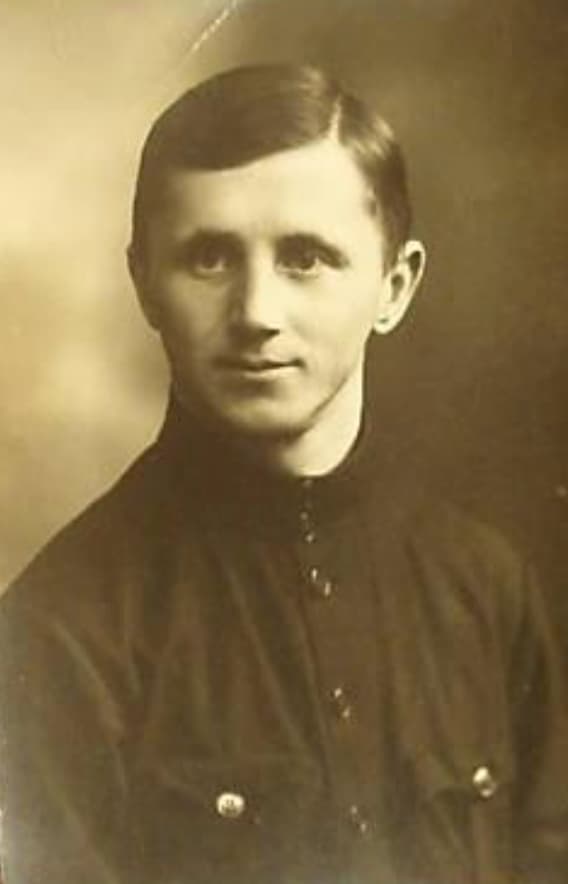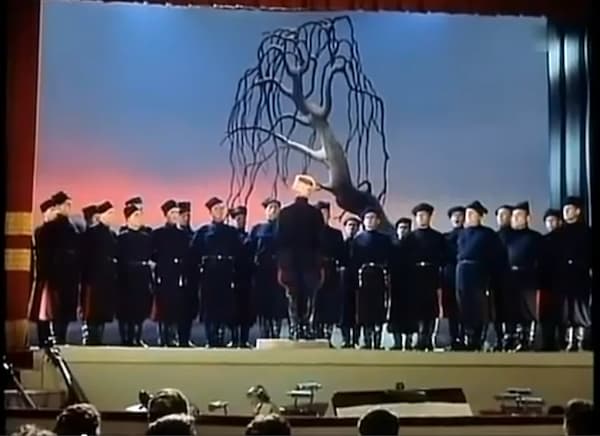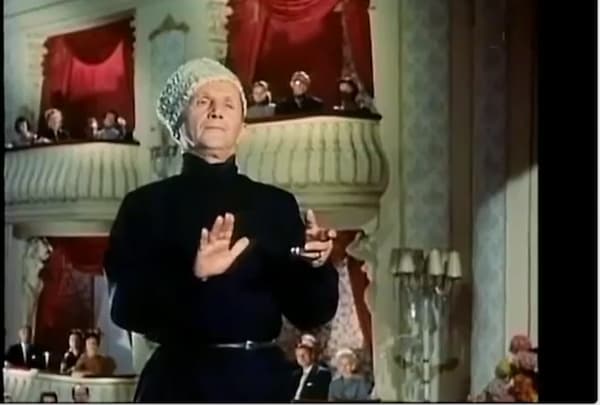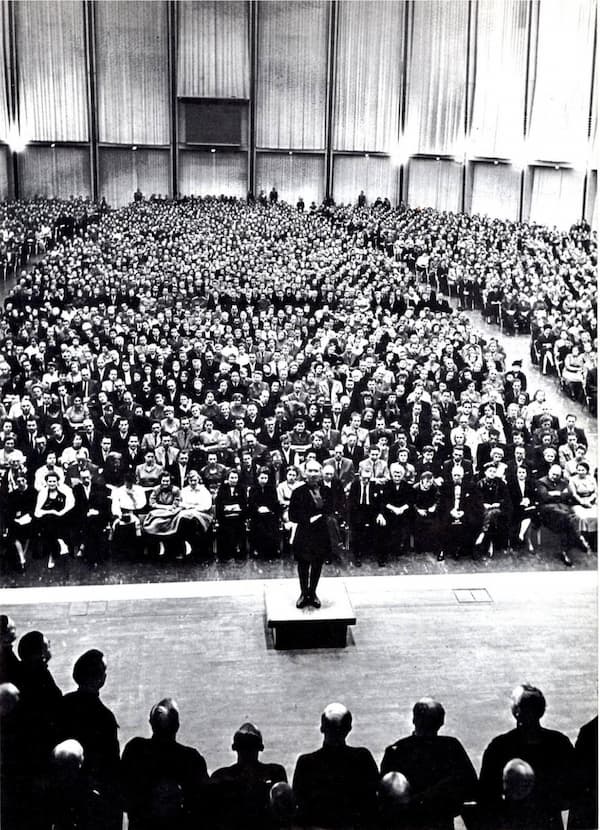Since the fall of the Soviet Union in 1991, connoisseurs of classical choral music in Russia have been able to access Russian choral music the Soviets had long suppressed, such as that of the Don Cossack Choir of Serge Jaroff (1896-1985), a world-famous Russian émigré choir. It was a group whose music they suppressed so strongly that the very mention of it was forbidden.
It was Soviet oppression that brought about its existence in the first place. It was founded at a concentration camp in Turkey in 1921, drawing its members from Tsarist Cossack regiments from the Don River region who were deported by the Red Army after losing the Russian Revolution to the Bolsheviks. Jaroff, a detainee who had been educated at a famous choir school, was ordered to conduct it for Russian Orthodox services at the camp.

Serge Jaroff
Arranging repertoire from memory because no scores were available, and working in life-threatening conditions, Jaroff surprisingly transformed thirty-six promising amateurs into a profoundly expressive and technically brilliant world-class ensemble. Once liberated, they undertook a professional career in 1923, achieved immediate stardom, and went on to concertize all over the non-Communist world with unimaginable long-term success. They began touring in the United States in 1930 to great acclaim. Without a country and forbidden ever to return home, they attained U.S. citizenship in 1943. Bolstered by new recruits, mainly from the émigré community, the choir continued to flourish for many years, giving its last concert in Paris in 1979.
In concert, Jaroff’s Cossacks always dressed in the same type of austere uniforms they had worn during the war, and audiences loved it.

Serge Jaroff and his choir in concert
Jaroff arranged most of their music. Their concerts, all sung in Russian, always began with Russian Orthodox liturgical works by composers such as Bortniansky, Rimsky-Korsakov, Tchaikovsky, and Chesnokoff. Jaroff performed them with a very emotionally expressive concert style that differed markedly from the restrained style heard in Orthodox church services, and their effect on audiences was profound. The following are especially notable examples:
How Glorious Is Our Lord In Zion, by Dmitri Bortniansky
Cherubic Hymn No. 7, by Dmitri Bortniansky
Next came highly expressive folk and traditional songs:
The Red Sarafan
Monotonously Rings the Little Bell
Last on the program were raucous Cossack military songs that celebrated historically significant Cossack victories.
The Song of Ataman [General] Platoff
Superb octavists (very low basses) and falsettists (countertenors) provided the framework for the choir’s strikingly beautiful sonority. Octavists were standard in Russian choirs by Jaroff’s time, but his inclusion of falsettists was innovative. It greatly increased the choir’s range, and made mixed-choir repertoire from the Russian Orthodox canon possible.
Jaroff’s conducting style was unusually restrained, yet intense. Using minimal hand motions enhanced by a range of facial expressions, he interpreted every piece they performed in great detail, evoking constant rubatos and dynamic changes which moved audiences so deeply that the language barriers which existed between them and their audiences did not matter.

Serge Jaroff conducting
At a time when such was uncommon, especially for classical musicians, the Don Cossacks became international superstars, garnering millions of fans, selling millions of records, and receiving countless rave reviews. Over the years, they performed on every continent but Antarctica, and were reputed to be the best choir in the world.
Today, however, their situation is quite different. Most members of the classical choral music community in the United States are unaware of their existence. When they hear about how widespread their success was and the profound effect they had on their audiences, they are reluctant to believe it. However, it is clearly documented by the newspaper reviews of their concerts in many countries throughout the world, and by photos of them performing to huge crowds.

In the United States, some of the most touching reviews came from small towns or small colleges, where their performances were lauded as the best music the people there had ever heard. However, they were similarly lauded in large cities. Distinguished New York music critic Deems Taylor stated in the early 1930s that Jaroff’s Don Cossacks were the best chorus he had ever heard or ever hoped to hear.
In recent years, interest in the choir has rekindled in Europe, and important research about it is taking place there. Thanks in particular to the efforts of Irina Minsky, widow of Michael Minsky, one of the choir’s distinguished soloists, most of their recordings have been reissued. Many are available on YouTube and subscription services such as Spotify and Naxos Music Library, and some of their very early recordings are available on russian-records.com. Videos of the German feature films in which they starred and the German TV specials they made are available on YouTube.
Since the fall of the Soviet Union, Russian cognoscenti who are aware of this great choir have been striving to reintroduce it to its home country. For example, a Russian Orthodox arch-priest has written a book about Jaroff and has amassed a vast collection of Don Cossack recordings and memorabilia, but his efforts are not readily accessible outside of Russia, and given the current situation, this is unlikely to change.
It is in Germany, where the choir has always been especially popular, that they are best remembered. There is now an official Munich-based successor choir called the Don Kosaken Chor Serge Jaroff which tours throughout Germany. It is conducted by Wanja Hlibka, who was Jaroff’s youngest soloist in the choir’s final years.
In the United States, which was their home for over forty years, the Don Cossacks were a household word for a long time. However, after Jaroff’s death in 1985, they faded almost completely from public attention. Given that there are currently so many ways to access their music, it is time to reintroduce them to America’s classical music community and to the classical music communities anywhere that presently do not know about them. Their music deserves an honored place in the canon of the best that classical choral music has to offer.
Donna Arnold is the long-time music reference librarian at the University of North Texas Music Library in Denton, Texas. In this large music research library, she enjoys answering questions on a wide range of subjects for faculty, students, national, and international patrons. She holds a Ph.D. in musicology from the University of North Texas and a master’s degree in library and information studies from Texas Woman’s University. In recent years, she has done considerable in-depth research and published a number of articles about Serge Jaroff and his Don Cossack Choir.
For more of the best in classical music, sign up for our E-Newsletter




